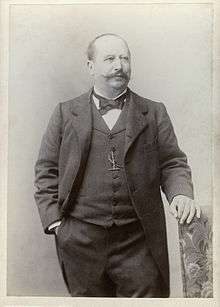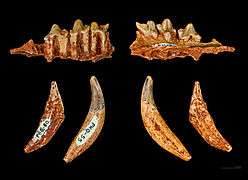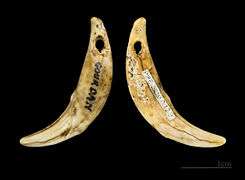Henri Filhol

Henri Filhol (13 May 1843 – 28 April 1902) was a French medical doctor, malacologist and naturalist born in Toulouse. He was the son of Édouard Filhol (1814-1883), curator of the Museum of Toulouse.
After receiving his early education in Toulouse, he moved to Paris, where he obtained doctorates in medicine and science. In 1879 he was appointed professor of zoology at the Faculty of Toulouse. From 1894 to 1902 he occupied the chair of comparative animal anatomy at the Muséum national d'Histoire naturelle in Paris. In 1897 he became a member of the Académie des sciences.
In the field of paleontology, he performed important studies of fossilized mammals in the phosphorites in Quercy.[1]
He served as the expedition doctor and naturalist on the French 1874 Transit of Venus expedition to Campbell Island, New Zealand, with a peak on the island, Filhol Peak, being named after him.[2] In 1883 with Alphonse Milne-Edwards, Léon Vaillant, Edmond Perrier and others, he embarked on a scientific journey aboard the Talisman.[3]
Henry Filhol's Collection
-

Adapis parisiensis MHNT
-

Hyaenodon Filholi MHNT
-

Wolf Canine adornment Magdalenian Gourdan-Polignan MHNT
-

Pendant in reindeer antlers Gourdan-Polignan MHNT
References
- ↑ Henri Filhol (1843-1902)- Gloubik Sciences
- ↑ Tee, Garry J. Science on the Map: Places in New Zealand Named After Scientists. The Rutherford Journal.
- ↑ Henri Filhol (1843-1902)- Gloubik Info. Sciences, biography